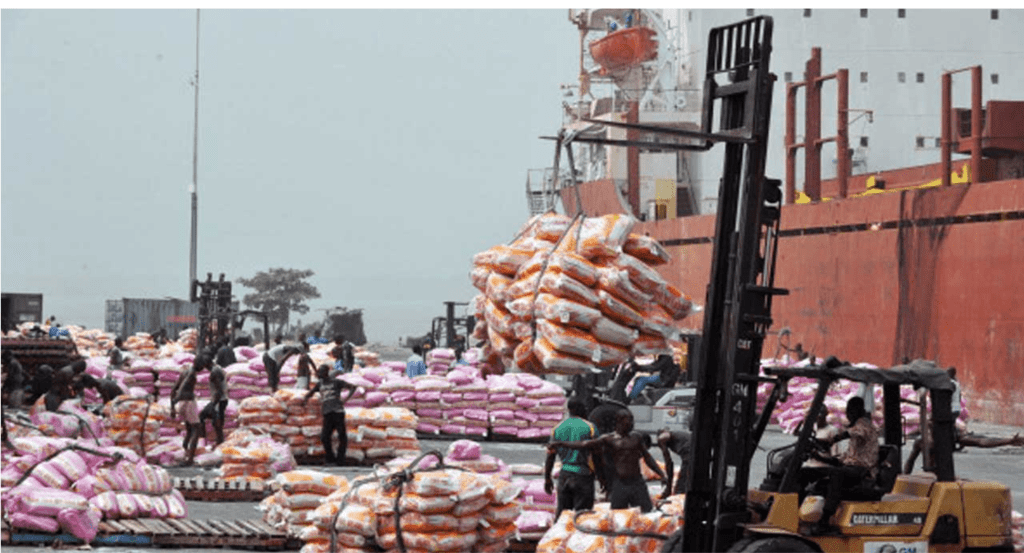Nigeria maintained a strong trade relationship with Economic Community of West African States (ECOWAS) nations in the fourth quarter of 2024, recording N1.18 trillion in exports while imports stood at N77.10 billion, according to a recent report by the National Bureau of Statistics (NBS).
Ivory Coast Leads as Nigeria’s Top ECOWAS Trading Partner
Ivory Coast emerged as Nigeria’s largest export destination within ECOWAS, accounting for N756.37 billion worth of goods. Other major export destinations included:
- Senegal – N236.87 billion
- Togo – N47.97 billion
- Ghana – N36.26 billion
- Benin Republic – N31.56 billion
These five nations absorbed 94.33% of Nigeria’s total exports to ECOWAS, demonstrating the country’s reliance on a few key markets within the region.
On the import side, Ivory Coast also led as Nigeria’s biggest supplier, with imports totaling N41.40 billion. Other major import partners included:
- Ghana – N22.96 billion
- Liberia – N4.04 billion
- Niger Republic – N2.62 billion
- Togo – N2.21 billion
Together, these countries accounted for 90.45% of Nigeria’s total imports from ECOWAS.
Nigeria’s Top Exports to ECOWAS
The report highlights that petroleum products remain Nigeria’s biggest export, reinforcing the nation’s position as a leading energy supplier in West Africa. The most traded export commodities included:
- Petroleum oils and oils from bituminous minerals – N911.38 billion (77.52% of total exports)
- Electrical energy – N75.66 billion (6.44%)
- Dredgers – N73.99 billion (6.29%)
- Cigarettes containing tobacco – N27.24 billion (2.32%)
- Liquefied petroleum gases and other gaseous hydrocarbons – N10.81 billion (0.92%)
These top five exports accounted for 93.49% of Nigeria’s total shipments to ECOWAS.
Key Imports from ECOWAS Nations
Nigeria’s imports from its West African neighbors were primarily raw materials and consumer goods, including:
- Crude palm oil – N10.13 billion (22.39%)
- Petroleum bitumen – N14.38 billion (17.76%)
- Cocoa powder with added sugar or sweeteners – N8.13 billion (10.04%)
- Beauty and makeup products – N4.93 billion (6.09%)
- Liquefied petroleum gases and other gaseous hydrocarbons – N4.01 billion (4.95%)
Nigeria’s Trade Surplus and Future Prospects
With exports far exceeding imports, Nigeria enjoys a strong trade surplus within ECOWAS, largely due to its dominance in petroleum exports. However, the country’s reliance on a handful of trading partners and oil-related exports suggests the need for greater trade diversification.
As Nigeria continues to expand its regional trade policies, there is potential for growth in manufacturing exports, agriculture, and value-added products, strengthening its economic ties within ECOWAS and beyond.
Would Nigeria’s trade strategy evolve beyond oil exports in the coming years? Only time will tell.




















